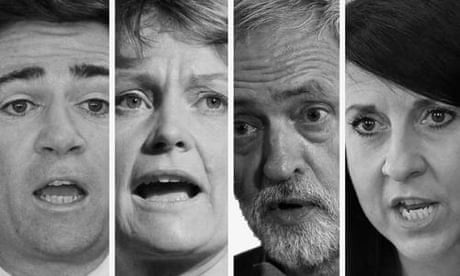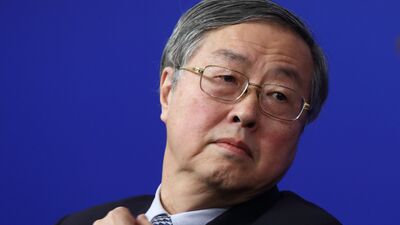Yvette Cooper has sought to energised her determined late run for the Labour leadership by announcing she wants to rework the famous clause IV of Labour’s constitution so that it includes a new explicit commitment to champion equality.
The shadow home secretary said that the current clause IV– rewritten two decades ago by Tony Blair in a symbolic ideological break with Labour’s previous commitment to public ownership – was striking in that it calls only for equality of opportunity.
In an interview with the Guardian, Cooper said: “That is not enough. We need to tackle widening inequality itself. In the 90s it was argued, ‘So long as we just champion equality of opportunity everything else will look after itself,’ but it does not. The big challenge of the next 10 to 20 years is widening inequality.”
She said Labour could only cement its moral purpose by making it clear that its mission is to secure greater equality of wealth and income, as well as equal rights between sexes and races. “We have to set out what we have always believed in our heart of hearts. We have to put equality at the heart of our crusade and values, and promise to fight the big new forces that are now driving inequality across the globe”, she said.
Voting in the Labour leadership contest closes at lunchtime on Thursday, with the leader announced on 12 September.
As late as Tuesday, only 50% of the 554,000 people entitled to vote had returned their ballot papers. This prompted the Cooper camp, accused of running an over-cautious campaign until now, to argue the party electorate was taking its time to decide before the ballot closed.
Cooper said: “The next seven days could well decide the next 10 years.”
Jeremy Corbyn, the leftwinger speaking to packed and enthusiastic meetings across the country, remains the odds-on favourite to win, although the shadow home secretary has enjoyed a week in which she seized the domestic political initiative by demanding David Cameron accept 10,000 refugees from the war-torn Middle East.
There are signs that voter turnout is highest among those who have spent £3 to register as party supporters, thought to be Corbyn supporters, but with turnout lowest among party supporters in the unions.

Clause IV sets out the party’s aims and values and says that Labour should aim for “a community in which power, wealth and opportunity are in the hands of the many, not the few”. Cooper added: “I don’t think we need to start from scratch. We should be confident about our values, but we need to add to clause IV so that core purpose is explicit.”
Cooper believes the change was not window dressing, but would provide a modern ideological framework that united the party and reflected new insights into how a globalised economy was deepening inequality.
The new clause IV, she said, would give the party an agreed ideological framework to combat the four new forces driving inequality and so lower growth – a polarised labour market, the absence of equal chances in the early years, widening wealth inequality fostered by failings in the housing market, and the return of discrimination and prejudice.”
First written in 1918, the original wording backed the common ownership of the means of production, distribution and exchange, and was interpreted to mean public ownership. Earlier in the campaign, Corbyn also spoke of recasting clause IV, but has since appeared to backtrack.
Cooper, however, rejected a rewrite that went closer to the original version: “We are not going to win the elections of the 2020s by going back to the politics of the 1970s and far earlier. It’s more radical to be talking about Sure Start, empowering parents, the housing market and combatting corporate high pay than it is to spend billions of pounds to shift power within an energy company from one small group of people to another small group based in Whitehall.”
Cooper added the governor of the Bank of England, Mark Carney, warned that inequality damaged growth, while the director of the International Monetary Fund, Christine Lagarde, had spoken of a gilded age and the impact of widening inequality on reducing global growth.
On the question of Syrian refugees, she attacked the prime minister’s response, saying Britain could not fulfil its commitment to Europe if it refused to take any of the refugees already on the continent, notably some of the 50,000 that had arrived in Greece in a month.
Cameron said on Friday that Britain would only take an unspecified number of asylum seekers from UN-run refugee camps on the borders of Syria.
Cooper said: “Clearly it is better to have a legal asylum route from the camps so as to prevent people travelling in the first place, but right now, given the scale of the humanitarian crisis, we also have to do our bit to help Europe deal with those who have fled into European democracies. We need a managed response by government, otherwise some parties right here and in Europe will use this to play the politics of fear and division. What is striking right now is the number of people that want to say the British way of doing things is to provide help. People are saying they do not want to turn inwards and be a darker and narrower country.”
She said 43 councils had now written to her in less than 24 hours saying they wanted to help, and she would be meeting with Citizens UK next week to build on the very British desire to help.
She condemned remarks by Viktor Orbán, the Hungarian prime minister, on Muslims trying to enter Europe and accused him of “preying on the anxiety about the disorder on the border to escalate fear and division.”
“It is deeply chilling to hear a European, elected prime minister say this, given the distress we see from the crowded families on the trains,” she said.
She opposed EU refugee quotas, saying “it is better for people to come forward voluntarily though their communities, churches and councils to help rather than it being decided by a European bureaucracy. But if we do it that way, the onus is then on individual government, including Britain, to act.”










































Yvette Cooper is the only candidate who looks like a prime minister